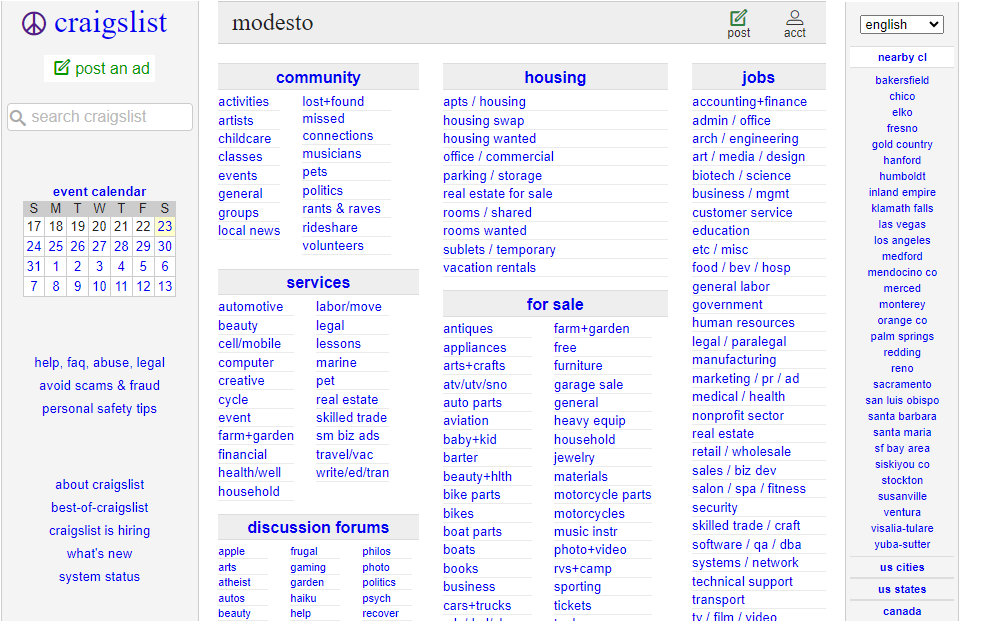Are you aware of how much of your personal data is floating around in the digital space? Just visit a people search site like Nuwber, type in your name and click search. You will be amazed by the amount of information that could be uncovered at a click of a button, from your address history to your financial details. All your online activity is releasing bits and pieces of your information to the digital space and you could be exposing yourself to a cyberattack in more ways than one. So, if you are becoming concerned about your data security, here are simple and actionable steps to protect yourself in just 4 days.
- Secure your accounts
Last year data breaches exposed records of 49 million users on Instagram and hundreds of millions of users of Facebook alone. While some of these may be beyond your control, there are definite measures you can take to guard against an attack on your accounts.
The first step is to minimize the number of profiles you create from social media and subscriptions to even those accounts you have set up to make online purchases. Limit yourself to the accounts you regularly use and shut down the remaining profiles after deleting any personal data they contain.
Then set up strong passwords and change them regularly at least once a month. Also, many reputed platforms will allow you to determine how you would like your data shared and made visible. Therefore, re-check your accounts’ privacy settings and adjust them to protect your data privacy.
- Secure your devices
Did you know that your IoT devices can be attacked in 5 minutes of connecting to the internet? The statistics are definitely unnerving, making it more critical to protect your devices proactively.
From your laptop to mobile phones, keep all devices password protected. Many devices today even allow you to use fingerprints and face-recognition for an added layer of security. And using a reputed anti-virus guard can warn you against any suspicious downloads or prevent you from visiting unsecured websites. Moreover, keeping your software updated can guard your devices against security vulnerabilities.
Think twice before you download any files or email attachments. Spyware attacks and hackings could often be initiated through document downloads. Be similarly cautious when clicking on links shared via emails, text messages, blogs or websites.
Also, remain alert when downloading apps to your mobile phones and tabs. These could easily compromise the security of your devices. Always download from reputed app stores such as Google Play or the Apple App Store and avoid third-party apps as much as possible. And watch out for those app permissions requested, which could provide them with access to a significant amount of your personal details from your location to the photo albums.
- Secure your data
Protecting confidential and sensitive data is another essential step. Always keep them encrypted and use secure passwords. Opt for a combination of letters, numbers and special characters to set up a strong password, and avoid using those that are easily guessable. Use 2-factor authentication where ever possible for added security.
It could be overwhelming to remember several passwords and pin codes, and as a result, many people often re-use them for several accounts. This practice could leave you vulnerable to data breaches, since hacking one document could provide easy access to several others. Therefore, ensure that you use distinct passwords for each file and account. Also, avoid storing them on your devices or writing them down. Using a secure password manager can instead help you to store and retrieve all your passwords easily and safely.
Moreover, refrain from storing data on platforms like Google Docs or Dropbox. Removable data storage devices such as USBs run the risk of malfunctioning or loss although they could have their own unique advantages. Instead, opt for secure cloud storage. And if you must store documents on your devices for whatever reason, ensure that they are password protected.
Keeping secure data backups is another smart choice to help you retrieve records in the event of a data loss.
- Secure your online behaviour
How you browse the internet can make you significantly vulnerable to a malicious attack. This is because you can unknowingly leave a data trail when you perform an online search or even visit a website. Your browser can store your search history so that it can provide you with a better search experience the next time around. Similarly, the websites you visit can use cookies to customize the adverts they show you based on your interests and preferences. Therefore, guarding against these constant intrusions is critical to protect your online data privacy.
Deleting your browser history and cache regularly is an important first step. Check your browser settings and disable functions such as auto-fill and password saving, which could store data relating to your online behaviour.
Also avoid public Wi-Fi networks, which can seriously leave your online activities exposed to hackers or simply anyone curious. And if you must use one of these unsecured connections, avoid accessing any confidential data or personal accounts. A good alternative to public Wi-Fi is a private hotspot using your mobile phone network.
And a Virtual Private Network or a VPN can protect you from being tracked by marketers or even cybercriminals by allowing you to remain anonymous online. It can help you hide your online activities by directing your internet traffic through various servers in different countries. The encrypted connections make it difficult for cybercriminals to infiltrate. And the VPN provides an added layer of security by shielding your IP address. There are both free and paid VPN services to choose from, while you could often get better protection with the paid options.
Whether you are worried about being constantly tracked by marketers or becoming a victim of a cybercriminal, taking effective measures could help you protect yourself and your data. So, follow these easy and practical steps today so that you could amp up your online security in just 4 days.







Add Comment